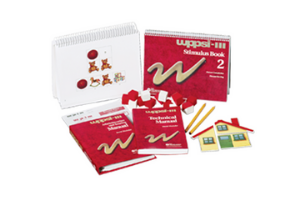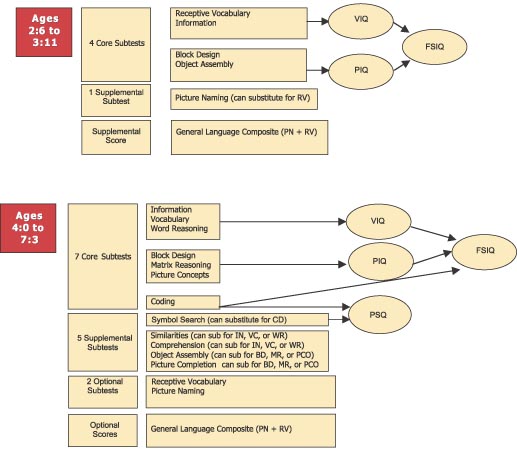Description
An assessment of cognitive development for preschool and young children.

An assessment of cognitive development for preschool and young children.
An assessment of cognitive development for preschool and young children.
David Wechsler
Overview:The improvements we've made to the Wechsler Preschool and Primary Scale of Intelligence™-Third Edition (WPPSI™-III) are the result of research gathered from customers, expert advisory panels, professionals in the field, and children who have been involved in the testing process. Consequently, WPPSI™-III features shorter, more game-like activities that hold the attention of children as young as 2-1/2 years. Simplified instructions and scoring procedures enhance the ease of administration for examiners. Both children and examiners benefit from the thoughtful, carefully constructed revisions implemented to build a highly respected, reliable test that completely reflects what customers and other professionals told us they wanted for WPPSI™-III.
Age Range:Children 2:6–7:3
Scoring Option:Manual scoring
RTI Tiers:RTI Level 3
Completion Time:Core subtests: Ages 2:6–3:11, 30–45 minutes; Ages 4:0–7:3, 45–60 minutes
Scores/Interpretation:Scaled Scores by age, IQs
Publication Date:2002
The improvements we’ve made to the Wechsler Preschool and Primary Scale of Intelligence™-Third Edition (WPPSI™-III) are the result of research gathered from customers, expert advisory panels, professionals in the field, and children who have been involved in the testing process. Consequently, WPPSI™-III features shorter, more game-like activities that hold the attention of children as young as 2-1/2 years. Simplified instructions and scoring procedures enhance the ease of administration for examiners. Both children and examiners benefit from the thoughtful, carefully constructed revisions implemented to build a highly respected, reliable test that completely reflects what customers and other professionals told us they wanted for WPPSI™-III.
Now you can have a reliable and valid measure of intelligence in young children that is more age-appropriate and user-friendly. These significant improvements provide more clinically useful information for diagnosis and planning, making WPPSI™–III an even more powerful tool.
WPPSI™-III has undergone substantial revision to increase the scale’s age appropriate properties.
WPPSI™-III test materials have been modified to make administration of the scale as user friendly as possible.
The scale’s psychometric properties have significantly improved.
Data from the WPPSI™-III validity studies allow a better understanding of the relative performance of clinical and non-clinical groups, while giving the examiner a better way to describe a child’s individual performance relative to his or her appropriate reference group.
Existing subtests have been modified and new subtests have been added to include more engaging, age appropriate tasks.
